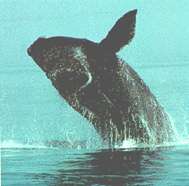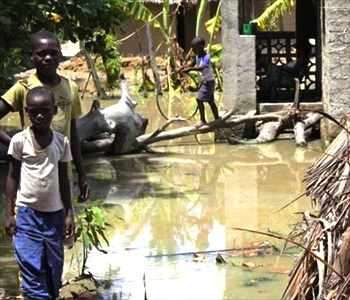The decades-old saga of the endangered Northern right whale has long stranded animal welfare advocates and the lobstermen on opposite shores of Cape Cod Bay. Until now.
In what both sides are calling a landmark step in a race to prevent the mammal's extinction, the two groups have teamed up to clear the bay of lost lobster traps, nets and other gear that have been blamed for injuring and killing the 40-ton creatures during their annual Atlantic migration from Canada to Florida.
The pilot project removed 300 lobster pots and attached lines in a cleanup that environmental officials say they want to repeat each year from now on.
"I believe most fishermen care. Not only do they not want to (lose their livelihood), they love the ocean and they love the creatures on the ocean," said Kyla Bennett, deputy director of the International Fund for Animal Welfare's Habitat for Animals division, who helped plan the collaborative effort with the Massachusetts Lobstermen's Association.
Of the approximately 300 right whales still left in the world, 60 percent bear the scars of fishing-gear entanglement, Bennett said, and 15 whales have died as a result of entanglement since 1970. The other major hazard is ship strikes, she said.
During the lobstering season, which began May 15, at least 42,000 lobster pots are placed in the bay, anchored with lines. Each year, some gear gets lost in storms or is abandoned and remains in the water during the whales' winter migration. The whales, which are surface feeders, may get buoys and lines caught in their mouths or may get snared in underwater nets used to trap fish.
For the eight-day cleanup, which took place during the first two weeks in May, the Yarmouthport-based animal welfare group put up $12,000 to pay eight lobstermen for their time and the use of their boats and to pay for the services of enforcement officers from the state Division of Marine Fisheries, who oversaw the operation. Lobstermen are concerned about the whales, said Gary Ostrum, a member of the executive board of the Massachusetts Lobstermen's Association, but they believe fishermen can coexist with them.
"We're trying to use common sense," said Ostrum. Aside from the cleanup, which he called a success, the lobstermen have developed new underwater buoy lines that are designed to break under pressure from a whale. Ostrum's association, which represents 1,600 commercial lobstermen, including roughly 400 on Cape Cod, is also considering running classes that would teach fishermen how to prevent whales from becoming entangled and what to do if they spot a whale getting caught in gear.
The issue is being watched closely by environmental organizations nationwide, including the Conservation Law Foundation, which filed a notice of intent in March to sue the National Marine Fisheries Service for failing to take enough measures to save the whale. The lawsuit has not yet been filed.
Daniel McKiernan, who coordinates the right whale conservation program for the Massachusetts Division of Marine Fisheries, said the pilot project may become a regular event on Cape Cod Bay.
"We don't want to have to be the garbagemen of the ocean," he said. But raising awareness among fishermen may permanently reduce the amount of gear that winds up drifting into the path of the endangered whale.










Be the first to comment